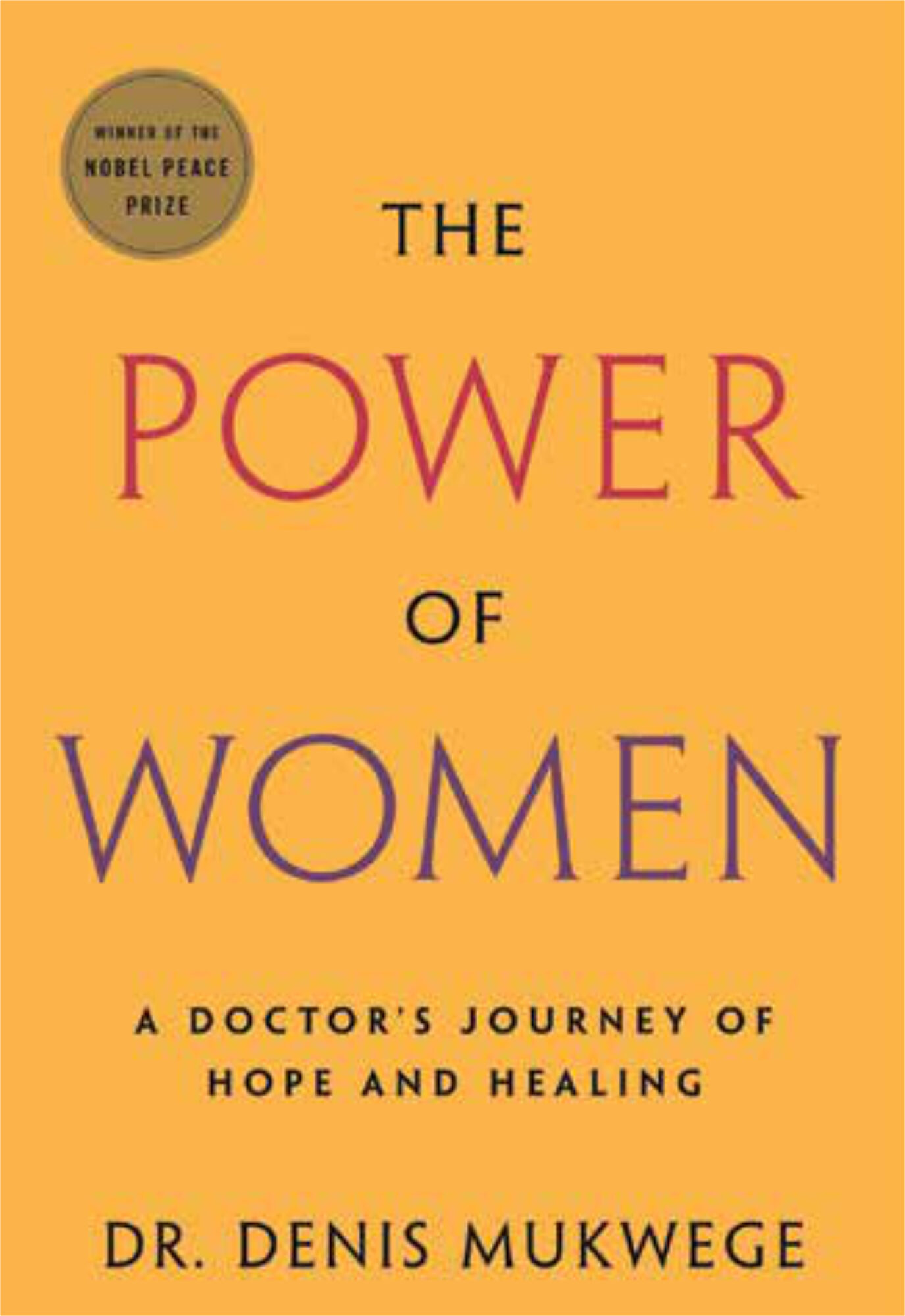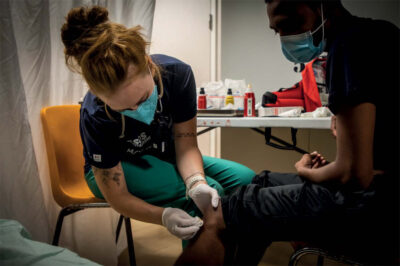Main content
Flatiron Books, New York, ISBN 978 94 031 54817
It is difficult to describe what happens between the first paragraph of the book, in which Denis Mukwege (Congolese gynaecologist and 2018 Nobel Peace Prize laureate) starts by saying “It is not too often a man is a champion of women rights“, and the last sentence, “I believe in the power of women.” He describes his life and career in which he becomes increasingly overwhelmed (physically while working in a hospital in Bukavu, DRC, as well as emotionally) by sexual violence against women. This happens mainly in the context of the 1st and 2nd Congolese war (1996-1997 and 1998-2003, respectively) that involved East Congo and neighbouring coun-tries Rwanda, Burundi and Uganda.

He tells the stories of individual victims of (mass) rape by soldiers (among oth-ers), who are often shot afterwards in the genital area and are then dumped somewhere, bleeding and in excruciat-ing pain. Those who could be saved by multiple sequential surgeries continue to struggle with serious psychologi-cal and social problems. Some of the women who become pregnant refuse to accept the baby after delivery saying it is Interahamwe (a Hutu paramilitary organization). Yet, some of them, with the help of Mukwege and his team, manage to regain their self-esteem and become role models for other victims. All this refers to the context of male dominance in which women are consid-ered second-rate individuals, power-less and without a voice of their own.
Mukwege places this in a wider con-text, makes the link with the #MeToo movement, and discusses other atroci-ties such as those against the Jezidi in Iraq, the Rohingya in Myanmar, and the missing school-girls in Nigeria.
Mukwege emphasizes that men and women must tackle this problem together. He becomes an interna-tional advocate for women’s rights, speaks at high-level interna-tional meetings such as the UN Assembly, and meets numerous heads of state. This high moral position comes at a price; not everybody, particularly in the DRC, appreci-ated his openness and accusations against the rapists. He received serious threats to his own and his family’s safety. After surviving a murder attempt, he flees with his fam-ily to the USA, but returns to the DRC to continue his mission after a heart-warming show of support from the local women of Bukavu. He is now back at work, with armed guards to protect him and his family, but with an unbroken spirit and exceptionally high moral leadership.
One cannot think of a more suitable recipient of the 2018 Nobel Peace Prize, an award which he shares with Nadia Murad, a Jezidi victim, both awarded for their efforts to end the use of sexual violence as a weapon of war and armed conflict.



















































